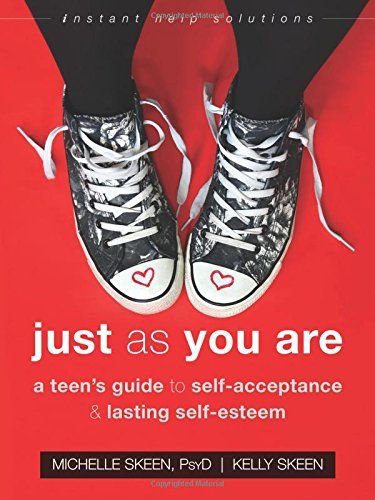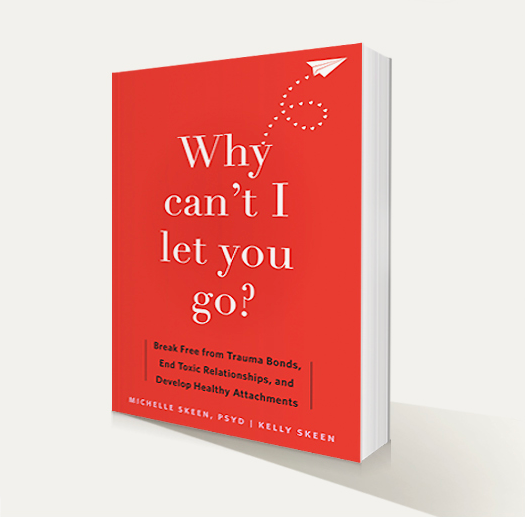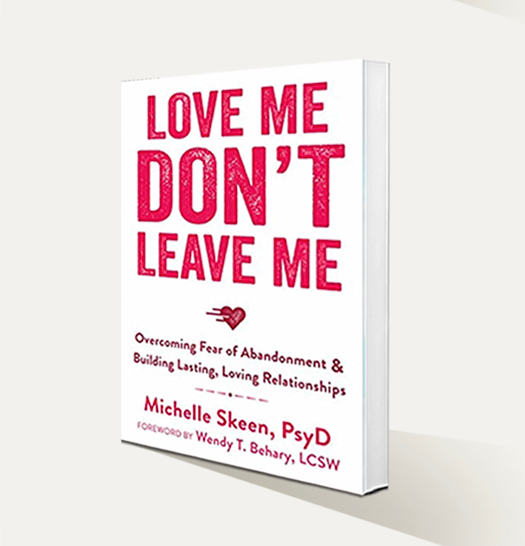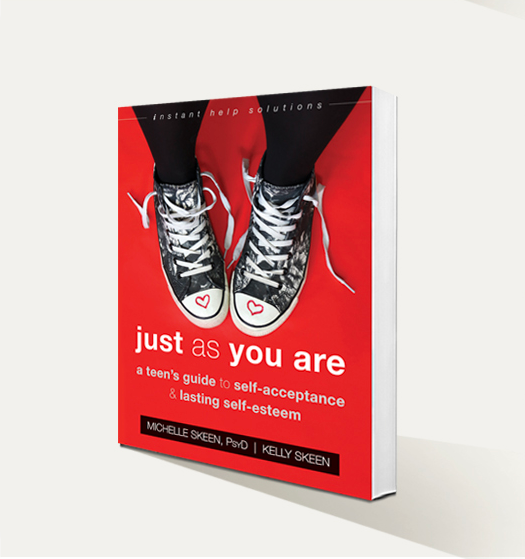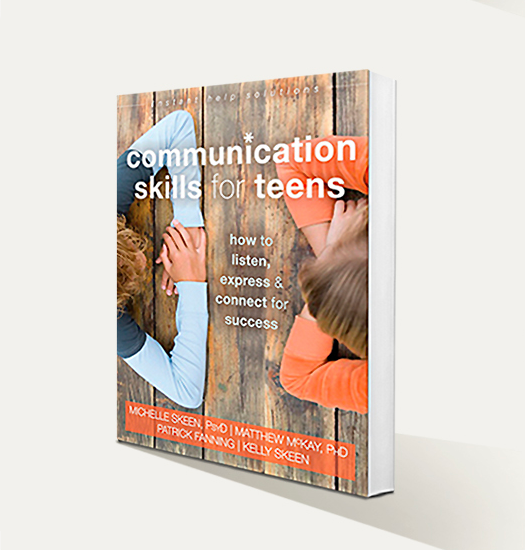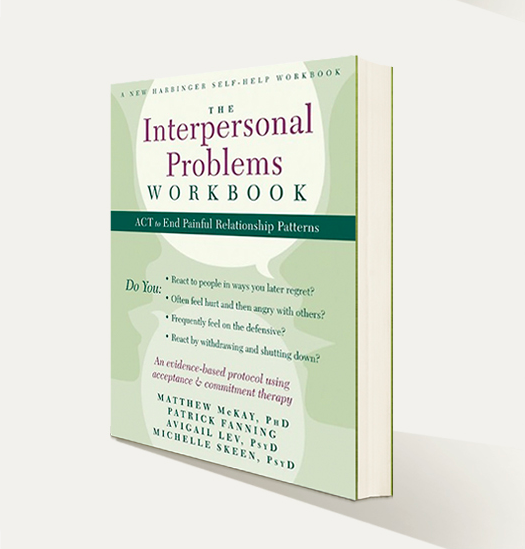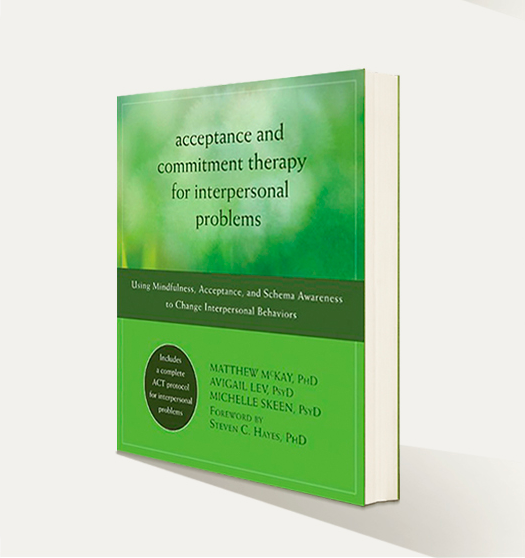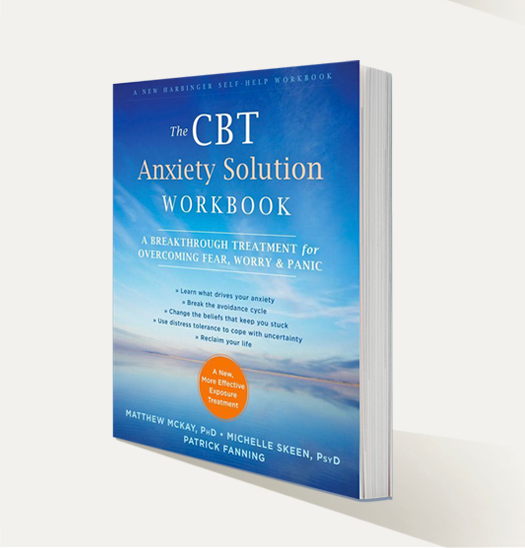My radio show on Thursday April 25, 2019
This week on Relationships 2.0 my guest is Alex Korb PhD author of The Upward Spiral Workbook: A Practical Neuroscience Program for Reversing the Course of Depression
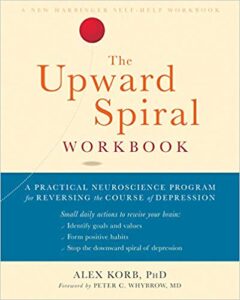 About the book:
About the book:
Positive life changes lead to positive brain changes. Drawing on the huge success of his groundbreaking book, The Upward Spiral, neuroscientist Alex Korb offers actionable, step-by-step skills to help you reshape your brain and create an upward spiral towards a happier, healthier life.
Depression is defined by a collection of symptoms. You feel crappy most of the time. Nothing seems interesting, and everything seems overwhelming. You have trouble with sleep. You feel guilty and anxious and have thoughts that life isn’t worth living. Each symptom reinforces and inspires new symptoms, and this is a sign that your brain circuits are caught in the downward spiral of depression. So, how can you reverse it?
In his first book, The Upward Spiral, neuroscientist Alex Korb demystified the intricate brain processes that cause depression and outlined a practical and effective approach for getting better. Based on the latest research, this evidence-based workbook takes the theory behind Korb’s breakthrough book and distills it into concrete, actionable exercises and skills.
Just as one small trigger can drag you down, an effective intervention can start enough momentum to carry you back up. Exercise, attention to breathing, gratitude, sleep hygiene, and positive social interactions are just some of the offerings in this workbook that can help alter activity in specific neural circuits, setting you on the path toward an upward spiral to happiness and well-being.
About the author:
Alex Korb, PhD, is a neuroscientist who has studied the brain and mental health for over fifteen years, starting with an undergraduate degree in neuroscience from Brown University. He received his PhD in neuroscience from the University of California, Los Angeles (UCLA), where he wrote his dissertation and numerous scientific articles on depression. He is author of The Upward Spiral, and is currently adjunct assistant professor at UCLA in the department of psychiatry. Outside of the lab, he is a scientific consultant for the biotech industry, and is head coach of the UCLA Women’s Ultimate Frisbee team. He has a wealth of experience in yoga and mindfulness, physical fitness, and even stand-up comedy.
My radio show on Thursday November 15, 2018
This week on Relationships 2.0 my guest is Mitch Abblett PhD (PART 2) author of The Five Hurdles to Happiness and the Mindful Path to Overcoming Them
 About the book: A practical approach to becoming aware of the “five hindrances”–the negative qualities that inhibit living the awakened life–and to breaking free of them in order to live more mindfully, effectively, compassionately. Five obstacles stand in between you and true happiness. What are they and how can you overcome them? Buddhist traditions teach that there are five negative qualities, or hindrances, that inhibit people from living an awakened life. Here, Mitch Abblett gives this teaching a modern, secular interpretation and helps you identify the hurdles that are blocking your contentment—desire, hostility, sluggishness, worry, and doubt—and how you can take your first steps to overcoming them. Combining traditional wisdom with contemporary psychology and using examples from his psychotherapy practice, Abblett uses the hurdles as a frame for engaging you in a process of contemplating your own life and learning to lean into your experience rather than merely repeating bad habits. By doing this, you can break free from the hurdles and live more mindfully, effectively, and compassionately.
About the book: A practical approach to becoming aware of the “five hindrances”–the negative qualities that inhibit living the awakened life–and to breaking free of them in order to live more mindfully, effectively, compassionately. Five obstacles stand in between you and true happiness. What are they and how can you overcome them? Buddhist traditions teach that there are five negative qualities, or hindrances, that inhibit people from living an awakened life. Here, Mitch Abblett gives this teaching a modern, secular interpretation and helps you identify the hurdles that are blocking your contentment—desire, hostility, sluggishness, worry, and doubt—and how you can take your first steps to overcoming them. Combining traditional wisdom with contemporary psychology and using examples from his psychotherapy practice, Abblett uses the hurdles as a frame for engaging you in a process of contemplating your own life and learning to lean into your experience rather than merely repeating bad habits. By doing this, you can break free from the hurdles and live more mindfully, effectively, and compassionately.
About the author: Dr. Mitch Abblett is a clinical psychologist, author, consultant and speaker. As a clinician, his services focus on work with children, teens, parents, families and adults with whom he creates solutions for a range of concerns or desired growth areas. A clinician in the Boston area for over 15 years, he brings a wealth of clinical experience from various settings (hospitals, outpatient clinics, residential facilities and therapeutic schools) to his practice. For 11 years he served as the Clinical Director of the Manville School at Judge Baker Children’s Center in Boston – a Harvard-affiliated therapeutic school program for children and adolescents with emotional, behavioral and learning difficulties. He has also served as the Executive Director of the Institute for Meditation and Psychotherapy. As a consultant and speaker, Dr. Abblett empowers changes clients through collaborative, tailored interventions. His consultative and training work focuses on mindfulness, compassion and value-driven action and empowering clients to communicate skillfully and authentically. He improves clients’ school and work effectiveness, reduces the effects of stress, and increases skills for health self-management and daily productivity. Dr. Abblett’s writing includes a mindfulness-based book for clinicians (The Heat of the Moment: Mindful Management of Difficult Clients; WW Norton & Co.), Mindfulness for Teen Depression and Helping Your Angry Teen (both with New Harbinger), five decks of mindfulness practice cards such as Growing Mindful: A Deck of Mindfulness Practices for All Ages: PESI Publishing). His upcoming book, The Five Hurdles to Happiness-and the Mindful Path to Overcoming Them will be released by Shambhala Publications in August 2018. He also blogs regarding mindfulness applications in family and relationships on Mindful.org.
My radio show on Thursday November 8, 2018
This week on Relationships 2.0 my guest is Margaret Winslow author of Smart Ass: How a Donkey Challenged Me to Accept His True Nature & Rediscover My Own
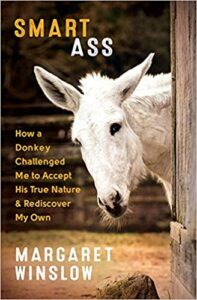 About the book: How do you resolve a midlife crisis? Margaret Winslow, an overworked college professor in New York City, answered a for-sale ad for a “Large White Saddle Donkey.” Hilarity ensued, along with life-threatening injuries and spirit-enriching insight. Walk with Winslow and Caleb the donkey through training traumas, expert-baffling antics, and humiliating races, and share in Winslow’s gradual understanding of Caleb’s true, undeniable gifts: a willingness to be true to himself no matter the circumstances, to trust, and to forgive. As she and Caleb learn to thrive, you’ll learn the importance of being true to your own pure and powerful self.
About the book: How do you resolve a midlife crisis? Margaret Winslow, an overworked college professor in New York City, answered a for-sale ad for a “Large White Saddle Donkey.” Hilarity ensued, along with life-threatening injuries and spirit-enriching insight. Walk with Winslow and Caleb the donkey through training traumas, expert-baffling antics, and humiliating races, and share in Winslow’s gradual understanding of Caleb’s true, undeniable gifts: a willingness to be true to himself no matter the circumstances, to trust, and to forgive. As she and Caleb learn to thrive, you’ll learn the importance of being true to your own pure and powerful self.
About the author: In addition to an unwitting wrangler of a rambunctious donkey named Caleb, Margaret Winslow is a field geologist with over thirty years of wilderness experience in Tierra del Fuego, Patagonia, Antarctica, Alaska, and the Caribbean. Her award-winning travel memoirs have been featured on interviews on NPR’s “West Coast Live,” Bonnie D. Graham’s “Read My Lips” on blogtalkradio, and the Tony Kilgallin Show on NapaTV. She has published over thirty papers in international scientific journals. Her fieldwork on earthquake hazards and archaeological settlement patterns in Alaska and Chile is featured in the PBS series “Fire on the Rim.” She is Professor Emerita of Earth Sciences at the City College of New York. She lives in the lower Hudson valley of New York with her husband, Joe Stennett, a retired oceanographer. Her hobbies include continuing attempts to train her donkey, memoir and mystery writing, singing, and hiking.
Radio show on Thursday October 25, 2018
This week on Relationships 2.0 my guest is Allie Rowbottom author of The Jell-O Girls: A Family History
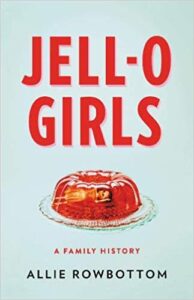
About the book: In 1899, Allie Rowbottom’s great-great-great-uncle bought the patent to Jell-O from its inventor for $450. The sale would turn out to be one of the most profitable business deals in American history, and the generations that followed enjoyed immense privilege – but they were also haunted by suicides, cancer, alcoholism, and mysterious ailments. More than 100 years after that deal was struck, Allie’s mother Mary was diagnosed with the same incurable cancer, a disease that had also claimed her own mother’s life. Determined to combat what she had come to consider the “Jell-O curse” and her looming mortality, Mary began obsessively researching her family’s past, determined to understand the origins of her illness and the impact on her life of Jell-O and the traditional American values the company championed. Before she died in 2015, Mary began to send Allie boxes of her research and notes, in the hope that her daughter might write what she could not. JELL-O GIRLS is the liberation of that story. A gripping examination of the dark side of an iconic American product and a moving portrait of the women who lived in the shadow of its fractured fortune, JELL-O GIRLS is a family history, a feminist history, and a story of motherhood, love and loss. In crystalline prose Rowbottom considers the roots of trauma not only in her own family, but in the American psyche as well, ultimately weaving a story that is deeply personal, as well as deeply connected to the collective female experience. A “gorgeous” (New York Times) memoir that braids the evolution of one of America’s most iconic branding campaigns with the stirring tales of the women who lived behind its facade – told by the inheritor of their stories. A New York Times Editors’ Choice One of People Magazine’s Best Books of Summer An Amazon Best Book of the Month An Indie Next Pick A Real Simple Best Book of 2018
About the author: Allie Rowbottom received her BA from New York University, her MFA from the California Institute of the Arts and her PhD in Creative Writing and Literature from the University of Houston. Her work has received scholarships, essay prizes and honorable mentions from Tin House, Inprint, the Best American Essays series, the Florida Review, The Bellingham Review, the Black Warrior Review, The Southampton Review, and Hunger Mountain. She lives in Los Angeles.
My radio show on Thursday September 13, 2018
This week on Relationships 2.0 my guest is Jonice Webb, PhD author of Running On Empty No More: Transform Your Relationships With Your Partner, Your Parents & Your Children
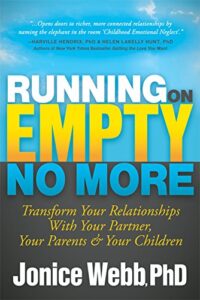 About the book:
About the book:
Since the publication of Running on Empty: Overcome Your Childhood Emotional Neglect, many thousands of people have learned that invisible Childhood Emotional Neglect, or CEN, has been weighing on them their entire lives, and are now in the process of recovery. Running on Empty No More: Transform Your Relationships will offer even more solutions for the effects of CEN on people’s lives: how to talk about CEN, and heal it, in relationships with partners, parents, and children.
About the author:
Jonice Webb, PhD is a licensed psychologist, and author of the groundbreaking bestseller, Running on Empty: Overcome your Childhood Emotional Neglect. Dr. Webb has been interviewed by NPR and the Chicago Tribune, and featured in Psychology Today and Elephant Journal. She writes the Childhood Emotional Neglect blog on psychcentral.com. Dr. Webb has an outpatient psychotherapy practice in Lexington, Massachusetts.
My radio show on Thursday August 30, 2018
This week on Relationships 2.0 my guest is Mitch Abblett PhD author of The Five Hurdles to Happiness and the Mindful Path to Overcoming Them
 About the book:
About the book:
A practical approach to becoming aware of the “five hindrances”–the negative qualities that inhibit living the awakened life–and to breaking free of them in order to live more mindfully, effectively, compassionately.
Five obstacles stand in between you and true happiness. What are they and how can you overcome them? Buddhist traditions teach that there are five negative qualities, or hindrances, that inhibit people from living an awakened life. Here, Mitch Abblett gives this teaching a modern, secular interpretation and helps you identify the hurdles that are blocking your contentment—desire, hostility, sluggishness, worry, and doubt—and how you can take your first steps to overcoming them. Combining traditional wisdom with contemporary psychology and using examples from his psychotherapy practice, Abblett uses the hurdles as a frame for engaging you in a process of contemplating your own life and learning to lean into your experience rather than merely repeating bad habits. By doing this, you can break free from the hurdles and live more mindfully, effectively, and compassionately.
About the author:
Dr. Mitch Abblett is a clinical psychologist, author, consultant and speaker. As a clinician, his services focus on work with children, teens, parents, families and adults with whom he creates solutions for a range of concerns or desired growth areas. A clinician in the Boston area for over 15 years, he brings a wealth of clinical experience from various settings (hospitals, outpatient clinics, residential facilities and therapeutic schools) to his practice. For 11 years he served as the Clinical Director of the Manville School at Judge Baker Children’s Center in Boston – a Harvard-affiliated therapeutic school program for children and adolescents with emotional, behavioral and learning difficulties. He has also served as the Executive Director of the Institute for Meditation and Psychotherapy.
As a consultant and speaker, Dr. Abblett empowers changes clients through collaborative, tailored interventions. His consultative and training work focuses on mindfulness, compassion and value-driven action and empowering clients to communicate skillfully and authentically. He improves clients’ school and work effectiveness, reduces the effects of stress, and increases skills for health self-management and daily productivity. Dr. Abblett’s writing includes a mindfulness-based book for clinicians (The Heat of the Moment: Mindful Management of Difficult Clients; WW Norton & Co.), Mindfulness for Teen Depression and Helping Your Angry Teen (both with New Harbinger), five decks of mindfulness practice cards such as Growing Mindful: A Deck of Mindfulness Practices for All Ages: PESI Publishing). His upcoming book, The Five Hurdles to Happiness-and the Mindful Path to Overcoming Them will be released by Shambhala Publications in August 2018. He also blogs regarding mindfulness applications in family and relationships on Mindful.org.
Seventeen.com featured Just As You Are: A Teen’s Guide to Self-Acceptance and Lasting Self-Esteem

If being a teen is hard, then being a teen in 2018 might just seem impossible. In the midst of self-discovery, you have to deal with Instagram likes and so many filter options. There’s a constant round of feedback these days, and it can be so hard to tune all that out enough so that you can actually listen to yourself.
With the help of Just As You Are: A Teen’s Guide to Self-Acceptance and Lasting Self-Esteem, a book co-authored by psychologist and mom Michelle Skeen and her teen daughter Kelly, we will look at why self-esteem can sometimes feel like an uphill battle and what you can do to become more confident.
Here’s how you can boost your self-esteem…
YOU’RE NOT ALONE
Let’s get one thing straight: You are def not alone when it comes to having negative feelings about yourself sometimes, especially if you’re a girl. Why? Because society has turned female self-worth into a consumerist power play, where women are meant to feel like they’re less than so that are inspired to purchase things in order to feel good enough, thus fueling a lot of big businesses.
Another thing that can make matters worse when it comes to self-esteem is social media. In this world of comparison, where everyone’s lives are well-curated and on display, it’s easy to assume everyone, but you, is perfectly confident. “This can result in feeling that you are flawed—not as perfect as other people might seem,” says Michelle. “When these feelings get repeatedly reinforced overtime, it can lead to shame, depression, anxiety, and isolation.”
And this is something that so many teens experience. Even the girl with ALL the likes will sometimes feel like she’s not worthy, because self-worth comes from the inside (and no amount of comments can really change what the inside of your heart looks like). Confidence takes work for EVERYONE, and you can totally get there if you try.
SCIENCE PLAYS A ROLE, TOO
A lot of things can feel stressful when you’re a teen, and sometimes it’s not just circumstantial. Even science plays into how you’re feeling about yourself. “Teens are primarily ruled by their amygdala (the emotional part of the brain), while the rational part of the brain (the prefrontal cortex) is still developing,” Michelle says. This can make logically NBD situations feel really intense and upsetting.
KNOW WHAT’S REALLY MAKING YOU FEEL BAD
So how can you get your brain out of the way so that you can live your best *confident* life? The key is figuring out what makes you feel bad about yourself and learning how to minimize those negative situations.
For example, maybe you feel bad after hanging out with a particular group of friends. Think back to your most recent hang. Did anything happen that made you suddenly feel off? Maybe you noticed one friend low-key shading you, or there’s a chance your bestie talks about losing weight a lot and it makes you feel uncomfortable about your own body.
If you value the friendship with the person who seems to be bringing up negative feelings, try to chat with them about it. Maybe they’re in a confidence funk, too, and you’ll be just what they need to do a little internal work to feel better about themselves.
If the friendship has gotten too toxic, it also might be worth putting the squad on ice and spending a little more time with other friends or hanging out solo.
FIGURE OUT YOUR VALUES
According to Just As You Are, feeling more confident is “an inside job.” Instagram likes won’t actually build you up from the inside out. Instead, what you really need to focus on is “what matters to you and how you want to be seen.”
In order to do this, you need to identify your values. If you’re not sure what your morals are, ask yourself questions like:
- What is a trait that I respect most in other people?
- What is a turn-off in a crush or best friend?
- What is a quality that I want to be able to identify in myself?
- Who do I admire and why?
The answers to these questions will help you create a list of things you value (and odds are you respect your bestie’s intelligence over her IG game). Now that you know the traits you truly strive for, try to work towards them. If you admire a crush because of their powerful presence, go outside your comfort zone with an extracurricular activity (maybe theater?) so you can identify and hone that quality in yourself.
BE MINDFUL
Have you ever been in bed, trying to fall asleep and all of the sudden your brain is like: Hey, remember that really awkward thing you did on July 1, 2011? Bam, you can no longer sleep; all you can do is think about that awful moment that was years ago.
Obviously, you can’t help it when those negative thoughts pop into your head, but “by attaching to our negative beliefs and the resulting thoughts, we come to believe that they define who we are at our core,” according to Just As You Are. “In turn, our inner self is expressed through our outer self.” And this practice can be really toxic.
To combat those thoughts that keep you up at night, try your hand at mindfulness, or “the basic human ability to be fully present, aware of where we are and what we’re doing,” according to Mindful.org.
To gain control over negative thoughts, you need to get some distance from them. In Just As You Are, Michelle walks you through an exercise to help with this process…
Take a few minutes and write down the thoughts in your head. Then, go through these thoughts, looking for patterns, really dissecting them. Do they mostly have to do with the future? Do they all involve school work? Do they revolve around social situations?Taking these thoughts out of your head and putting them on paper allows you to look at them in a different light and helps you understand more of where they come from, what they’re focused on and what they mean. Then, you can begin focusing in on a specific issue. For example, if all your negative thoughts pertain to the future, try making a one year plan to organize the thoughts and up your confidence regarding the upcoming months.
REALLY LISTEN
Sometimes you’re your own worst enemy. Case in point: You ask your bestie to critique your class presentation, so she tells you that you spoke a little fast, but that all of the information you said was really well-put and interesting. As your own biggest critic, “you will likely latch on to comments that confirm your negative beliefs about yourself,” according to Michelle. And you’ll miss all the good stuff your bestie is saying about you!
In order to avoid this, try to be an active listener and truly pick up on everything, not just the aspects that confirm the negative thoughts you have in your head. It’s easier said than done, but with practice, it can be achieved.
Everyone struggles with self-esteem issues. Some deal with it every day, while others find those bad thoughts creeping up every once in a while. Whatever the case may be, it’s important to realize that you can gain control over your self-confidence.
For more tips like the ones above, check out Just As You Are: A Teen’s Guide to Self-Acceptance and Lasting Self-Esteem.
Just As You Are: A Teen’s Guide to Self-Acceptance and Lasting Self-Esteem
amazon.com$16.95
My radio show on Thursday August 9, 2018
This week on Relationships 2.0 I’m replaying an interview with David A. Carbonell, PhD author of The Worry Trick: How Your Brain Tricks You into Expecting the Worst and What You Can Do About It. Our chat originally aired in early 2016.
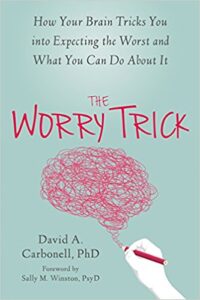 About the book:
About the book:
Are you truly in danger or has your brain simply “tricked” you into thinking you are? In The Worry Trick, psychologist and anxiety expert David Carbonell shows how anxiety hijacks the brain and offers effective techniques to help you break the cycle of worry, once and for all.
Anxiety is a powerful force. It makes us question ourselves and our decisions, causes us to worry about the future, and fills our days with dread and emotional turbulence. Based in acceptance and commitment therapy (ACT) and cognitive behavioral therapy (CBT), this book is designed to help you break the cycle of worry.
Worry convinces us there’s danger, and then tricks us into getting into fight, flight, or freeze mode—even when there is no danger. The techniques in this book, rather than encouraging you to avoid or try to resist anxiety, shows you how to see the trick that underlies your anxious thoughts, and how avoidance can backfire and make anxiety worse.
If you’re ready to start observing your anxious feelings with distance and clarity—rather than getting tricked once again—this book will show you how.
About the author:
David Carbonell, Ph.D., is a Clinical Psychologist who specializes in the treatment of anxiety disorders. He is the founder and director of the Anxiety Treatment Center, Ltd., a small group of psychologists which offers treatment of all manner of fears and phobias at several locations in and around Chicago, and the “coach” at www.anxietycoach.com, a self help web site for people troubled by fears and phobias.Dr. Carbonell is a recognized expert in this field, and has conducted training and seminars for a variety of professional groups, including the Anxiety Disorders Association of America; the International Association of Cognitive Psychotherapy; the United Airlines Employee Assistance Program; the Rockland County and Suffolk County Psychological Associations in New York; the Illinois Alcohol and Other Drug Abuse Professional Certification Association; the Illinois Employee Assistance Professionals Association; the Illinois Psychological Association, the New York Psychological Association; and Northwestern University Medical School, among others. He regularly offers a day-long workshop for professional therapists on the treatment of anxiety disorders at locations around the country, sponsored by Pesi Healthcare, Inc.
Dr. Carbonell is the author of Panic Attacks Workbook (Ulysses Press, 2004) and The Worry Trick (New Harbinger, 2016). He is a member of the American Psychological Association; the Anxiety Disorders Association of America; the Association for Behavioral and Cognitive Therapies; the Association for Contextual and Behavioral Science; the International Association for Cognitive Psychotherapy; the Illinois Psychological Association; and the Obsessive Compulsive Foundation. He is licensed as a clinical psychologist by the States of Illinois and New York.
My radio show on Thursday August 2, 2018
This week on Relationships 2.0 my guest is Kelly Skeen co-author of Just As You Are: A Teen’s Guide to Self-Acceptance & Lasting Self-Esteem
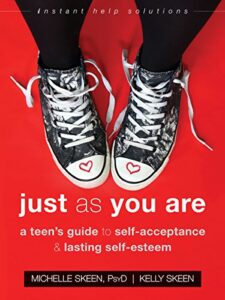 About the book:
About the book:
Stop comparing yourself to others—you’re special just as you are! In this fun, practical guide, you’ll learn how to silence your nit-picky inner critic, cultivate self-compassion, and discover what really matters to you.
If you’re like many teens, you probably feel pressured to live up to the impossible standards set by our culture, the media, and even by your peers. After all, everyone wants perfect hair, a perfect body, cool friends, and good grades. But while it’s okay to strive to be your best, it’s also easy to get caught up in a never-ending comparison game that can feed your inner critic and rob you of your happiness. So, how can you break free from negative self-criticism and learn to appreciate your strengths?
In Just As You Are, psychologist Michelle Skeen and her daughter, Kelly Skeen, offer simple tips to help you overcome feelings of inadequacy and unworthiness, stop comparing yourself to others, and be more open and accepting of all aspects of who you are. You’ll also learn how to be more aware of your thoughts and feelings in the moment using powerful mindfulness tools, and build a plan of action for the future based on your values.
Sometimes it’s hard to see yourself with clarity and kindness. With this important guide, you’ll learn to move past your faults, celebrate your true strengths, and discover what really matters in your life. What are you waiting for?
About the author:
Kelly Skeen is a recent graduate of Georgetown University in Washington, DC. As an American studies major, she concentrated in art and museum studies, and plans to pursue a career expanding access to the visual arts. She is also coauthor of Communication Skills for Teens with her mother, Michelle Skeen. Skeen strives every day for greater self-acceptance and to embrace who she really is! To learn more, visit her website at www.kellyskeen.com.
My radio show on Thursday July 26, 2018
This week on Relationships 2.0 my guest is Dean Sluyter author of Fear Less: Living Beyond Fear, Anxiety, Anger, and Addiction
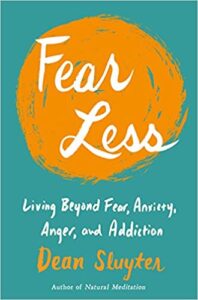 About the book:
About the book:These days there’s so much fear in the air, you can almost taste it—along with all the varieties of anxiety, anger, and addiction that grow out of it. How can you navigate your way through the fear and confusion, and find your way to peace?
In Fear Less, acclaimed teacher and award-winning author Dean Sluyter shows how to use simple meditative techniques and subtle tweaks of body, mind, and breath to open your life to deep, relaxed confidence. Drawing on ancient enlightenment teachings as well as contemporary research, he lays out practical, easy-to-follow steps for addressing such issues as:
• letting go of compulsive overthinking
• loosening the bonds of addiction (including smartphone addiction)
• overcoming the fear of death
• finding meditative stillness in the thick of activity
About the author:
Dean Sluyter (pronounced “slighter”) has taught natural methods of meditation and awakening throughout the U.S. and beyond since 1970, from colleges and yoga studios to corporate offices and maximum-security prisons. Dean is known for his warm, funny, down-to-earth style, and for making authentic, life-transforming teachings accessible and easy. His previous books include The Zen Commandments and Natural Meditation. Dean lives in Southern California.








